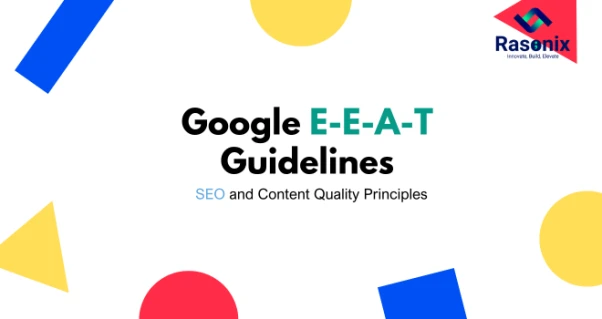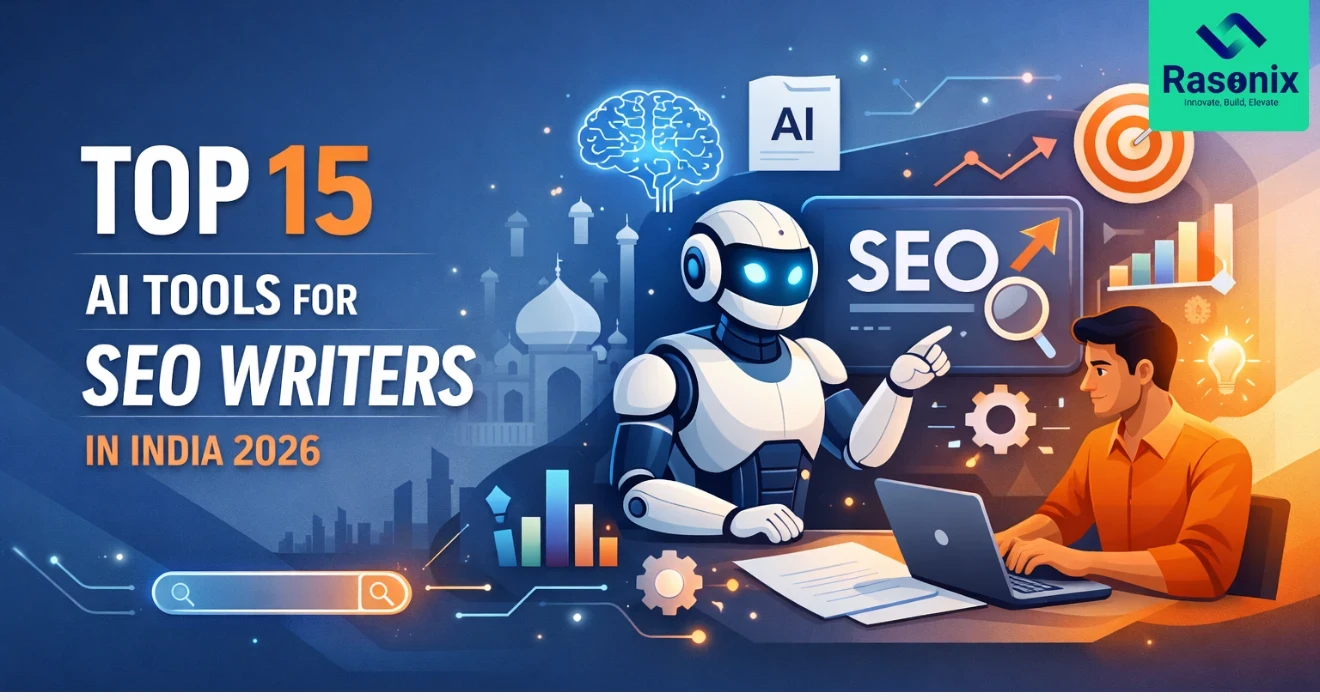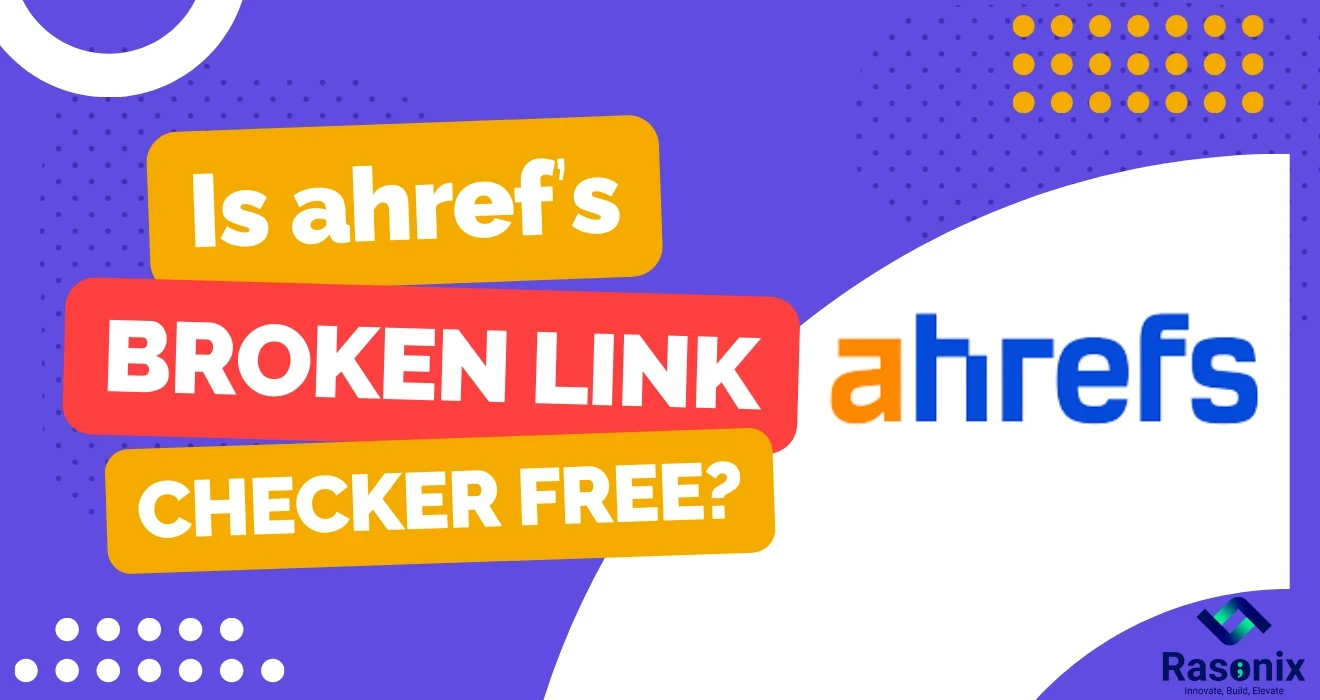Content creation is, of course, nowadays the lifeblood of search engine optimization. Google has been fine-tuning its algorithms now and then, and high-ranking sites offer unique and valuable content. But what makes this content truly valuable? To set the standard for quality, the E-E-A-T, or experience, expertise, authority, and trust from Google, lays out concrete standards on how one can attain trustworthiness and visibility in the search results.
Why Is Content Important for SEO?
Unique content is how websites convey their messages to users and search engines alike. It informs, entertains, and instructs users on what action to take, thus determining a great deal about any particular site's relevance and authority. Content signals to search engines that a site is worth recommending; it offers businesses immense opportunities to grow, according to SEMrush.
Nevertheless, some content is better than others. Search engines tend to favour content that is creative in a sense or gives value to their users. Plagiarism or thin content creates penalties, thereby diminishing site visibility and credibility. Quality original content is therefore critical to the sustainability of the game called SEO.
The Importance of Unique Content for SEO
Quality content type must be available because:
- It Increases Visibility: Google prefers creating new and original content that adds value.
- Increases Engagement: It enhances dwell time and lessens bounce rates.
- Establishes Trust & Credibility: Unique well-researched content is considered authoritative by both users and search engines.
- Generates Backlinks: Original insights attract natural backlinks, an important ranking factor.
By creating original content, and aligning with user intent, a company could improve its search rankings and build an online presence.
SEO and Content Quality Principles | Google E-E-A-T Guidelines

Google evaluates content based on several key principles:
1. Relevance: Content must answer users’ queries effectively. The more closely content aligns with search intent, the better it performs in rankings.
2. Uniqueness: Copying or spinning content harms rankings. Websites should aim to offer fresh perspectives, insights, and data-driven information.
3. Depth & Accuracy: Comprehensive, factually correct content enhances authority. Google’s algorithms favor well-researched content backed by credible sources.
4. Engagement & Readability: Content structured with bullet points, subheadings, and visuals increases user engagement. Readable content reduces bounce rates and encourages visitors to explore further.
5. Consistency & Freshness: Regular updates indicate relevance. Websites that frequently publish high-quality content tend to rank higher in search results.
Google E-E-A-T Guidelines: Why They Matter
Google's E-E-A-T standards represent the essence of quality. They set the criteria for distinguishing between reliable operators and low-quality sources.
- Experience: Actual experience is incredibly vital to the credibility of the document being described.
- Expertise: Authors are retrained in the-related field. Content becomes very relevant when produced by an expert or a professional concerned in a narrow field of knowledge.
- Authoritativeness: Text that was cited and linked from popular bodies went on to strengthen its trustworthiness.
- Trustworthiness: The validity of any argument is reassured by its source and providence, as its accuracy earns it due respect in the eyes of the user, especially considered on the basis of user safety while accessing it.
How to Improve E-E-A-T for Your Website
- Showcase author credentials.
- Cite authoritative sources.
- Provide transparent, well-researched information.
- Encourage user reviews and testimonials.
The Impact of Google Helpful Content Update
Google's Helpful Content Update tries to filter out content that was created to cheat the search rankings rather than help the users. Thus, since the implementation of this update, websites with thin, deceptive, or irrelevant content have lost their visibility in search engines.
Key Takeaways from the Update
- Content Quality Over Everything Else: Develop your content with your visitors in mind, not simply to boost search rankings.
- Google hates AI content: Human-produced content with proven expertise and human experience is valued by Google.
- Google's hatred for low-value content: The whole domain may be influenced if many low-quality contents appear in one site.
What Is YMYL (Your Money or Your Life)?

YMYL (Your Money or Your Life) content is that which can have a significant impact on a user’s health, finances or safety. Due to its importance, Google expects this content to be of extremely high quality.
Examples of YMYL Topics
- Health & Medicine: Medical conditions, treatments, and fitness advice.
- Finance & Investments: Banking, loans, investments, and budgeting.
- Legal & Government Information: Laws, taxes, and legal advice.
- News & Public Information: Major world events, elections, and safety alerts.
How to Optimize YMYL Content for SEO
- Provide accurate, well-sourced information.
- Ensure the content is authored by experts.
- Avoid misleading or sensational claims.
- Regularly update content to maintain accuracy.
Real-Time Data & SEO Insights
Grasping real-time trends of SEO would keep the businesses ahead. Key SEO statistics attesting to the importance of unique content include the following:
- 93% of all online experiences begin with a search engine.
- 60% of marketers know that inbound content earns the highest quality leads.
- Google processes over 8.5 billion searches each day.
- Websites that contain a blog receive 97% more backlinks than those without it.
- 75% of users don't venture onto the second page of search results.
Such insights give a reason to ponder as to why it becomes paramount that one must never compromise on the aspect of unique SEO-optimized content for the purpose of digital success.
Strategies for Creating Unique, High-Ranking Content
To have an actual impact in the search engine marketing, companies should not be implementing generic content but should rather develop user-driven value. In that regard, some recommendations may include:
- Do some Keyword Research in Depth: Have valuable, longtail keywords with intent for searching. Use such tools as Google Keyword Planner, Ahrefs, or SEMrush.
- Use Original Research & Case Studies Set up surveys, collect a specific amount of data, and offer new insights on it. Google puts above all new content, with fresh data inside it.
- Fix Readability through Structure & Visuals Use short paragraphs, bullet points, and infographics./
- Make engaging by adding enticing images, video clips, or tables. Content Must Be People-First and Help-Full Directly solve user problems in concision.
- Do not artificially enrich them with keywords when it costs quality readability. Ensure Freshness of Content Make sure older articles are updated with data or news. Repurate content in different formats (videos, podcasts, etc).
Google Core Update 2025:
|
First Intent of Search
|
Google deems fit for content that does not only appear to match some keywords but actually answers the query being sought by the user.
|
|
AI in Search
|
AI Overview and chat features powered by AI are popping up very quick answers to queries
|
|
Boosting EEAT
|
The websites must show Experience, Perspective, Authoritativeness, and Trustworthiness, particularly for sensitive things (health, finance, law).
|
|
User Experience
|
Fast-load, mobile-friendly, and easy-to-navigate websites have higher priority by Google.
|
|
Original Content Wins
|
Original and expert-driven content ranks better, while repurposed or thin content is heavily penalized.
|
|
Detecting AI Spam
|
Penalties for poorly generated AI content that has not been checked by a human inspector.
|
|
SERPs Enhanced by AI
|
Expect a continually changing landscape of interactive search results: Video highlights. Q&A boxes.
|
Google Helpful Content Update 2025
|
Think User-First
|
Content must really help the user and not just serve a ranking purpose.
|
|
Stop Using Clickbait
|
Titles attempting to mislead or exaggerate may lead to penalties.
|
|
Stay True to Your Niche
|
Sites that cater to a specific theme or industry do better.
|
|
Keep Updating Your Content
|
Fresh updated info keeps the ranking happy.
|
Google Spam Update 2025
|
More Strict Guidelines on AI Content
|
AI spammers and unverified information will see plummeting rankings.
|
|
Link Spam Controls
|
Google cracks down on manipulability of link-building tactics.
|
|
Better Detection of False Reviews
|
Businesses with false reviews may be penalized.
|
Google Local Search Update 2025
|
Google customizes local search results by the user's location and behaviour to give more personal results.
|
|
More Powerful Signals from Local Businesses: Reviews, NAP (Name Address Phone), phone, and Google My Business updates influence visibility.
|
Conclusion
Unique and high-quality content is what makes the foundation for SEO performance. Google's revised E-E-A-T guidelines and Helpful Content Update emphasize the importance of original, meaningful, and user-first content. With search engines valuing expertise, authority, and trustworthiness, businesses must focus on providing well-researched, engaging content that genuinely helps their audience. On the other hand, the rise of the YMYL topics has sparked interaction from Google's varying algorithms. While quality guidelines stress expertise and authenticity, the debate on AI and SEO is shaping how search engines value content.
At Rasonix, we know how daunting it is to write original and SEO-friendly content. Our professional staff develops a content strategy for you and executes SEO optimization and digital marketing services to help you become more visible on the Internet. You can rest easy in peace knowing that Rasonix will provide high-quality content, from blog posts to actual website content and articles optimized for SEO, that will set your content apart, guaranteeing a higher placement in search results. Let's create content that will entice users, warrant their engagement, and foster the expansion of your brand. Contact us now!
FAQs on Unique Content, SEO, and Google’s E-E-A-T Guidelines
1. Why is unique content important for SEO?
SEO rates unique content as very important, as for search engines like Google, it is a priority to offer original content to users, relevant to their needs. Websites with duplicate or quality-threatening step may be lowered or penalized. Original content helps with building authority, being well-researched, engaging, and applying organically in the user base.
2. What is the principle of E-E-A-T in SEO provided by Google?
E-E-A-T refers to Experience, Expertise, Authoritativeness, and Trustworthiness. It is one of the key points in the quality guidelines set by Google, stating that information should come from recognized sources. Websites with a strong E-E-A-T signal get good SERP placements, especially in sensitive areas such as finance, health, and law, among others.
3. Why is the E-E-A-T principle important to SEO?
Through E-E-A-T, Google tries to figure out if a particular site is providing legitimate information. If a website does not appear to be credible or has misleading information, it will probably not have good rankings. By paying attention to the E-E-A-T, businesses can actually build up their brand reputation and be visible in search better.
4. What is the Google Helpful Content Update?
The Google Helpful Content Update allows the search engine to clarify new ways to ensure “people-first” content prevails above AI- or keyword-stuffed sites. The update penalizes sites for producing content that is deemed unoriginal, unhelpful, or clickbait, while it rewards the ones producing content that provides meaningful value for users.
5. How does Google determine quality content?
Google determine the quality of the content through relevance (does it fulfill the intent of the user?), originality (is the content unique or copied?), depth & accuracy (is it factually right?), and engagement (does it keeps the user to stay on the page?)




















 Subscribe Now
Subscribe Now